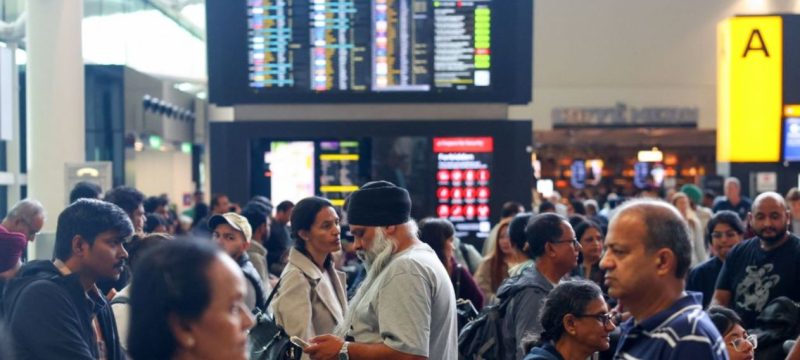European airports are struggling to restore operations after a cyberattack disrupted check-in systems across major hubs. The cyberattack forced airlines and airport authorities to cancel or delay hundreds of flights, leaving thousands of passengers stranded.
The disruption began on Friday when hackers targeted Collins Aerospace, a company owned by RTX, which provides check-in and boarding systems. The cyberattack on European airports affected London Heathrow, Berlin Airport, and Brussels Airport, among others.
By Sunday, authorities were still working to bring systems back online. Brussels officials asked airlines to cancel half of Monday’s flights, citing persistent issues with the automated check-in process. Passengers at several airports reported long queues, delays, and confusion as staff tried to process boarding manually.
Officials said that while flight safety was not compromised, the cyberattack severely affected ground operations. The incident highlighted vulnerabilities in the aviation sector, where digital systems are deeply integrated into daily functioning.
The European Union has urged airlines and airport operators to strengthen their cybersecurity protocols. Experts warn that the aviation industry is increasingly becoming a target for hackers, with check-in and passenger data systems being high-risk points of entry.
At London Heathrow, the busiest airport in Europe, travelers faced hours-long delays. Some passengers expressed frustration over limited communication from airlines, while others feared missing connecting flights. Berlin Airport also experienced cancellations, though local officials said emergency measures were in place to ease the backlog.
The cyberattack on European airports comes as global travel is rebounding after years of pandemic-related disruptions. With passenger numbers rising, any system failure causes widespread impact. Aviation analysts note that the timing of this attack may not be coincidental, as hackers often exploit peak travel periods.
Authorities in Brussels said they are investigating the origins of the attack. While no group has claimed responsibility, officials suggested the scale indicated a coordinated effort. Collins Aerospace confirmed that it was working with cybersecurity experts to resolve the issue and restore services as quickly as possible.
The incident echoes concerns raised during other global disruptions, such as mass evacuations in Asia following natural disasters. For example, Saudi Arabia’s recent National Day public holiday also underscored how sudden events—whether celebratory or disruptive—can affect large populations at once.
As European airports continue to recover, passengers have been advised to check with airlines before traveling. Officials emphasized that full restoration of systems could take several days. The cyberattack serves as a reminder of how dependent modern aviation has become on digital infrastructure, and how urgent cybersecurity upgrades are for protecting travelers worldwide.







